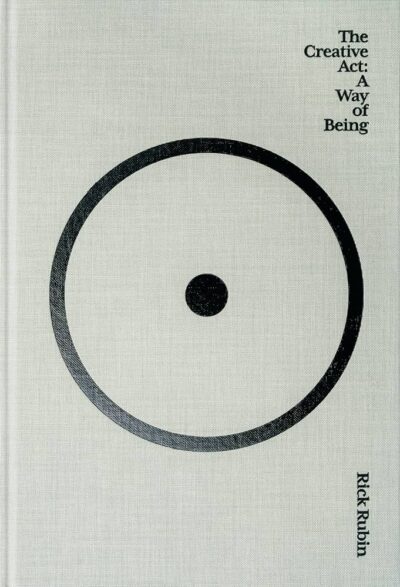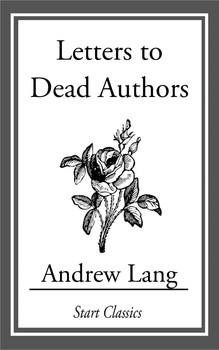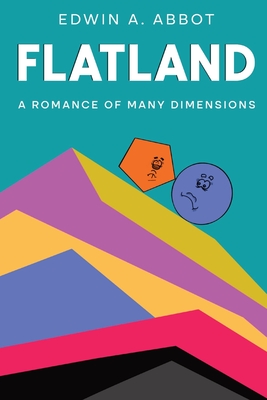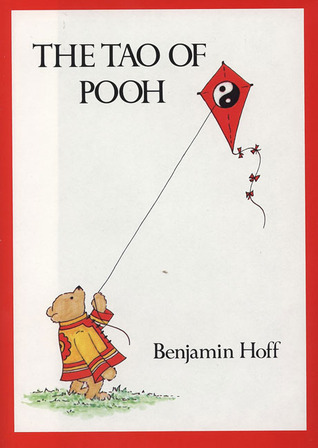182 Results with the "Philosophical" genre
Adventure Fiction (1164)
Biography (435)
Business & Finance (1)
Children's Literature (124)
Comics (6)
Culture (51)
Drama (123)
Dystopian (29)
Fable (86)
Fantasy (1132)
Fantasy (203)
Fiction (1010)
Finance (1)
Gothic Fiction (12)
Historical Fiction (615)
History (122)
Horror (56)
Lifestyle (36)
Literary (404)
Literary Fiction (207)
Memoir (113)
Mystery (422)
Non-fiction (87)
Novel (549)
Paranormal Fiction (96)
Philosophy (45)
Poetry (249)
Political Fiction (14)
Politics (42)
Practical (32)
Psychological (4)
Psychological Thriller (108)
Relationship (6)
Romance Novel (716)
Romantic Melodrama (14)
Satire (91)
Science (46)
Science Fiction (345)
Self-help (68)
Society (65)
Society (2)
Spiritual Growth (1)
story (2)
Thriller (704)
True Crime (56)
view (11)
Women's Fiction (2)
Young Adult (233)
-
Chapter
The Ecstatic
 The pursuit of creativity is often fueled by The Ecstatic—an indescribable sensation of overwhelming, almost intoxicating joy that emerges when something truly resonates. Whether it’s a breathtaking painting, a haunting melody, or a passage of literature that lingers in the mind long after it has been read, the Ecstatic is what draws both creators and audiences alike into the artistic experience. It’s akin to tasting fruit at the peak of its ripeness, a moment of perfection where everything aligns…
The pursuit of creativity is often fueled by The Ecstatic—an indescribable sensation of overwhelming, almost intoxicating joy that emerges when something truly resonates. Whether it’s a breathtaking painting, a haunting melody, or a passage of literature that lingers in the mind long after it has been read, the Ecstatic is what draws both creators and audiences alike into the artistic experience. It’s akin to tasting fruit at the peak of its ripeness, a moment of perfection where everything aligns…-
341.4 K • Ongoing
-
-
Chapter
Why Make Art?
 Art is more than an individual pursuit; it is an expression that extends beyond the artist, reaching into the collective human experience. The creative drive within artists resembles an instinctual pull, much like a bird’s migration or a river’s course to the sea—an unstoppable force that moves them to create. This impulse is not solely about personal exploration or the pursuit of recognition but rather an innate urge to communicate something meaningful, a desire to share a distinct perspective that…
Art is more than an individual pursuit; it is an expression that extends beyond the artist, reaching into the collective human experience. The creative drive within artists resembles an instinctual pull, much like a bird’s migration or a river’s course to the sea—an unstoppable force that moves them to create. This impulse is not solely about personal exploration or the pursuit of recognition but rather an innate urge to communicate something meaningful, a desire to share a distinct perspective that…-
341.4 K • Ongoing
-
-
Chapter
LETTER–To Charles Dickens
 Letter to Charles Dickens begins not with division, but with a call for balance—between voices, between readers, between the living force of your imagination and the measured realism of your great peer, Thackeray. Though their methods differed, both you and he worked toward understanding the heart of humanity, seen not only in drawing rooms but also in workhouses and alleys. The letter dismisses petty rivalry, instead urging appreciation of how both authors shaped the English novel. Your pages, Charles,…
Letter to Charles Dickens begins not with division, but with a call for balance—between voices, between readers, between the living force of your imagination and the measured realism of your great peer, Thackeray. Though their methods differed, both you and he worked toward understanding the heart of humanity, seen not only in drawing rooms but also in workhouses and alleys. The letter dismisses petty rivalry, instead urging appreciation of how both authors shaped the English novel. Your pages, Charles,…-
82.9 K • Ongoing
-
-
 Letter to Sir Walter Scott, Bart begins with a tone that feels both personal and respectful, as the writer draws an image of Scott that is more than just literary—he is described like an old friend, always present in the background of one’s imagination. This connection does not fade with time, for the warmth of Scott’s character, his fairness, and his almost selfless joy in life leave behind an impression that no history book could erase. Whether he had risen to fame or remained a quiet figure…
Letter to Sir Walter Scott, Bart begins with a tone that feels both personal and respectful, as the writer draws an image of Scott that is more than just literary—he is described like an old friend, always present in the background of one’s imagination. This connection does not fade with time, for the warmth of Scott’s character, his fairness, and his almost selfless joy in life leave behind an impression that no history book could erase. Whether he had risen to fame or remained a quiet figure…-
82.9 K • Ongoing
-
-
 Chapter 12 - The Paris of our Grandparents opens with a nostalgic journey through a city whose charm has shifted with time, filtered through the memories of a woman who witnessed its golden afternoons and political storms. Her recollections are not merely sentimental—they serve as a bridge between generations, showing how a city both molds and is molded by its people. Walking alongside her, one senses how deeply woven the past remains in Paris’s bones. The boulevards, once quiet avenues for carriage…
Chapter 12 - The Paris of our Grandparents opens with a nostalgic journey through a city whose charm has shifted with time, filtered through the memories of a woman who witnessed its golden afternoons and political storms. Her recollections are not merely sentimental—they serve as a bridge between generations, showing how a city both molds and is molded by its people. Walking alongside her, one senses how deeply woven the past remains in Paris’s bones. The boulevards, once quiet avenues for carriage…-
151.7 K • Ongoing
-
-
 Section 12 reveals a deeply rooted system where a person's form dictates their place in society, leaving little room for individuality or change. In this structured world, one's geometric shape determines social status and moral worth. Circles, viewed as the highest class, uphold a doctrine claiming that the more symmetrical a figure, the more virtuous and intelligent it must be. Such a belief leaves no space for merit or effort, reducing identity to mathematical precision. Even minor irregularities, like…
Section 12 reveals a deeply rooted system where a person's form dictates their place in society, leaving little room for individuality or change. In this structured world, one's geometric shape determines social status and moral worth. Circles, viewed as the highest class, uphold a doctrine claiming that the more symmetrical a figure, the more virtuous and intelligent it must be. Such a belief leaves no space for merit or effort, reducing identity to mathematical precision. Even minor irregularities, like…-
92.9 K • Ongoing
-
-
Chapter
Rules
 Creativity flourishes when artists dare to question the limitations imposed by convention, using rules not as restrictions but as temporary stepping stones toward innovation. This chapter explores the distinction between the fixed principles of disciplines like mathematics and science, where laws are unchanging, and the fluid nature of artistic rules, which are more suggestive than binding. Art, unlike scientific formulas, thrives on its ability to evolve, shaped by cultural shifts, personal…
Creativity flourishes when artists dare to question the limitations imposed by convention, using rules not as restrictions but as temporary stepping stones toward innovation. This chapter explores the distinction between the fixed principles of disciplines like mathematics and science, where laws are unchanging, and the fluid nature of artistic rules, which are more suggestive than binding. Art, unlike scientific formulas, thrives on its ability to evolve, shaped by cultural shifts, personal…-
341.4 K • Ongoing
-
-
Chapter
Openness
 Openness challenges the natural human tendency to seek certainty, emphasizing the value of flexibility and curiosity, particularly in creative endeavors. Throughout history, the ability to make quick assessments and form immediate judgments was essential for survival in an unpredictable world. This instinct for categorization has carried into modern life, where people often rely on established patterns and mental shortcuts to process an overwhelming influx of information efficiently. However, while these…
Openness challenges the natural human tendency to seek certainty, emphasizing the value of flexibility and curiosity, particularly in creative endeavors. Throughout history, the ability to make quick assessments and form immediate judgments was essential for survival in an unpredictable world. This instinct for categorization has carried into modern life, where people often rely on established patterns and mental shortcuts to process an overwhelming influx of information efficiently. However, while these…-
341.4 K • Ongoing
-
-
Chapter
Chapter 3: The Tao of Who?
 Chapter 3: The Tao of Who? Pooh shares with Hoff that he has learned about Taoist concepts from his ancestors, like the poet "Li Pooh" and the painter "Pooh Tao-tse." Hoff gently corrects him, noting that the real names are Wu Tao-tse and Li Po. In the Taoist tradition, a central concept is P’u, which means “the Uncarved Block.” Unlike abstract ideas, Taoists prefer to explain such concepts through real-world examples, making them more tangible. P’u represents the natural, unaltered state of…
Chapter 3: The Tao of Who? Pooh shares with Hoff that he has learned about Taoist concepts from his ancestors, like the poet "Li Pooh" and the painter "Pooh Tao-tse." Hoff gently corrects him, noting that the real names are Wu Tao-tse and Li Po. In the Taoist tradition, a central concept is P’u, which means “the Uncarved Block.” Unlike abstract ideas, Taoists prefer to explain such concepts through real-world examples, making them more tangible. P’u represents the natural, unaltered state of…-
68.0 K • Ongoing
-
-
 Chapter I opens with a reflection on how Henri Bergson's thought marks a turning point in modern philosophy, particularly in how we approach consciousness, reality, and the sacred. His work introduces a way of thinking that does not begin with definitions or logical premises but with life itself—moving, changing, and creating. Bergson places intuition and imagination at the center of philosophical inquiry, offering an alternative to the sterile detachment often found in rigid rationalism. Though he does…
Chapter I opens with a reflection on how Henri Bergson's thought marks a turning point in modern philosophy, particularly in how we approach consciousness, reality, and the sacred. His work introduces a way of thinking that does not begin with definitions or logical premises but with life itself—moving, changing, and creating. Bergson places intuition and imagination at the center of philosophical inquiry, offering an alternative to the sterile detachment often found in rigid rationalism. Though he does…-
57.6 K • Ongoing
-
- Previous 1 … 6 7 8 … 19 Next
